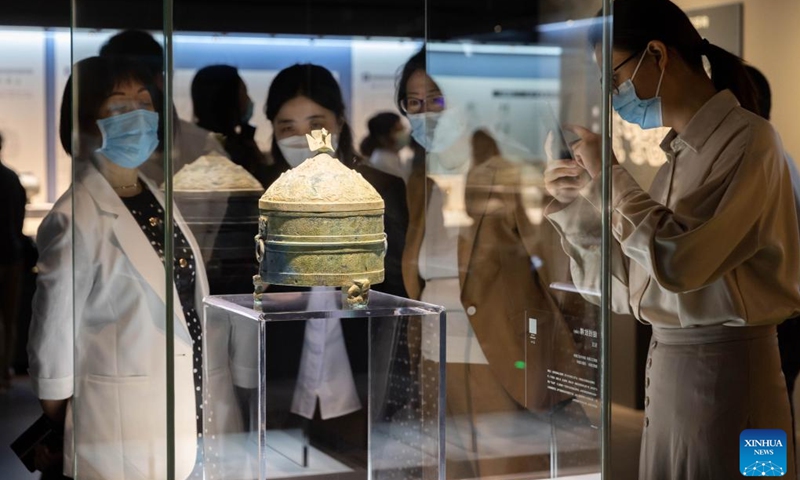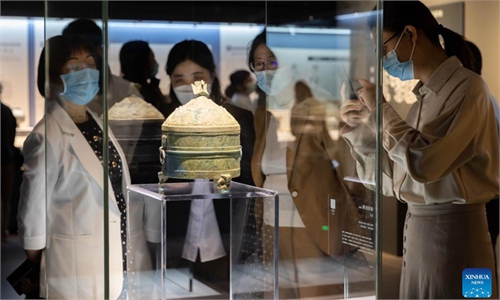China to start 4th national survey to establish catalog of immovable cultural relics

Visitors view an ancient bronze ware at the exhibition "Return in Golden Age: China's Retrieved Cultural Relics Exhibition" in Shanghai in September 2022. Photo: Xinhua
China's National Cultural Heritage Administration plans to start the fourth national survey of cultural relics later this year, and establish a national catalog of immovable cultural relics, a move to further strengthen efforts on cultural relics protection, according to the cultural heritage authorities.
It plans to take three to four years to investigate the amount, whereabouts, features, and conditions of immovable cultural relics in the country and establish a national catalog of immovable cultural relics, providing the basis for systematically clarifying the cultural relics resources and scientifically formulating cultural relics protection policies, Li Qun, head of the administration, said at a meeting on Thursday attended by officials from the country's cultural heritage authorities, according to Xinhua News Agency.
The survey will focus on re-examining the cultural relics already registered and identified, targeting immovable cultural relics on the ground, underground and underwater in the country's territory, according to the officials. Meanwhile, the work on relevant investigation and identifying newly found immovable relics will also be conducted.
A list of the ninth batch of key institutions on cultural relics protection will be made public, according to the administration.
The third national survey of cultural relics started from April 2007 and ended in December 2011, and over 760,000 immovable cultural relics were examined and registered, according to Xinhua.

